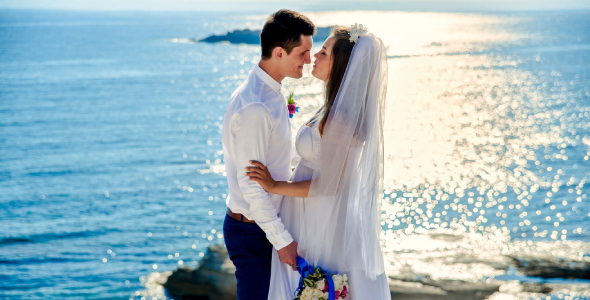10+ Best Wedding Invitation Examples to Download
If every person has a wall of milestones, wedding ceremonies would undoubtedly take the center spot in every display. For most, it’s a once in a lifetime experience. This prompts almost every bride and groom to give all they have for a rare and lavish event of their lives. It wouldn’t be as special as it claims to be without the presence of everyone who led them to where they are. If you’re gearing towards the most memorable day of your life, invite all of your family and friends to celebrate with you with an equally beautiful wedding invitation. If you’re on the lookout for one, go through our collection below.
10+ Best Wedding Invitation Examples
1. Beach Wedding Invitation
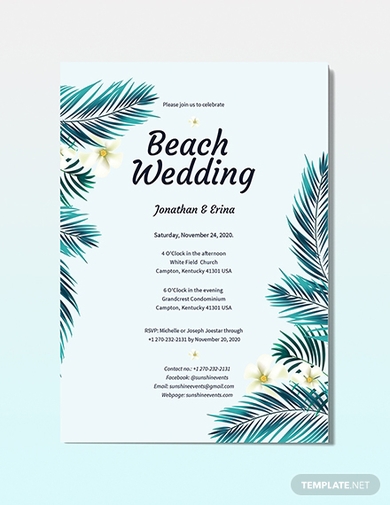
2. Calligraphy Wedding Invitation
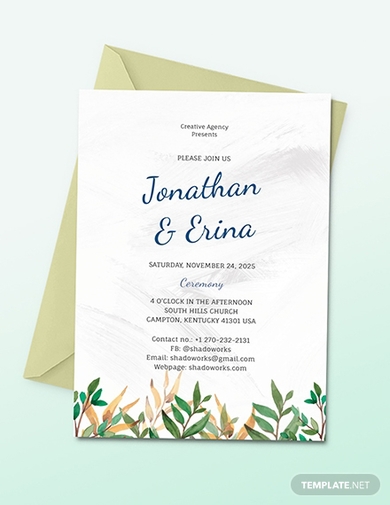
3. Country Wedding Invitation
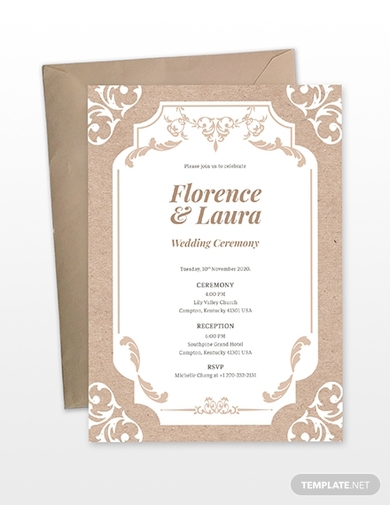
4. Fairy-tale Wedding Invitation
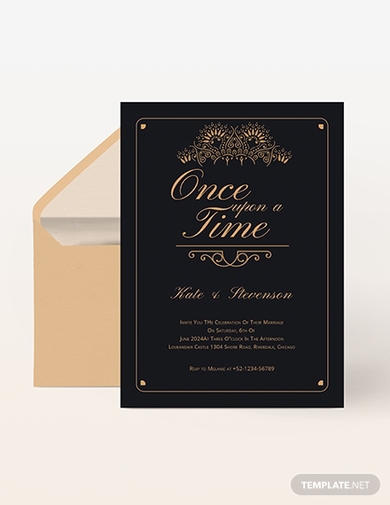
5. Formal Wedding Invitation
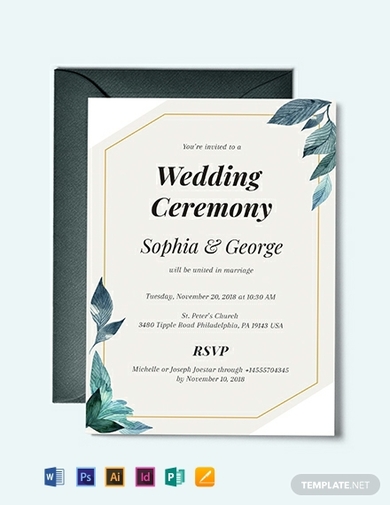
6. Halloween Wedding Invitation
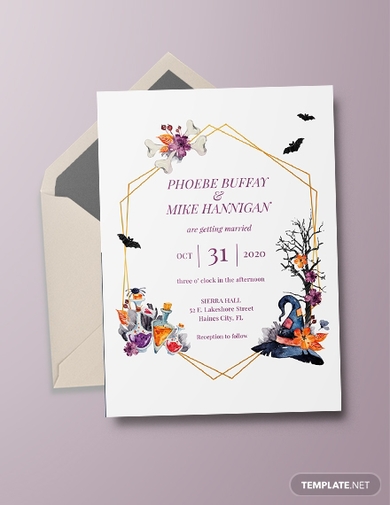
7. Photo Wedding Invitation
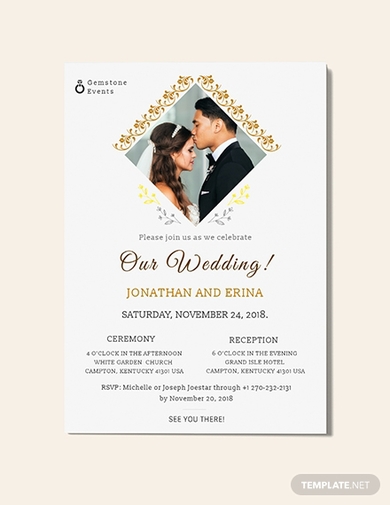
8. Wedding Invitation Card
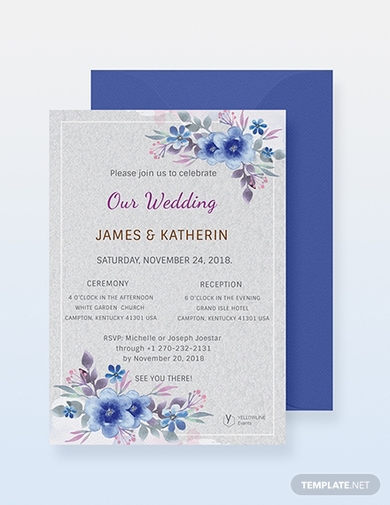
9. Sunflower Wedding Invitation
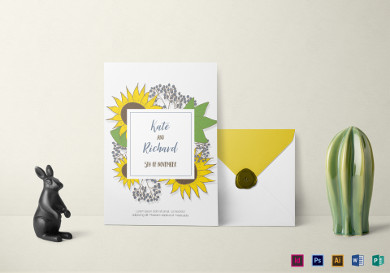
10. Royal Wedding Invitation
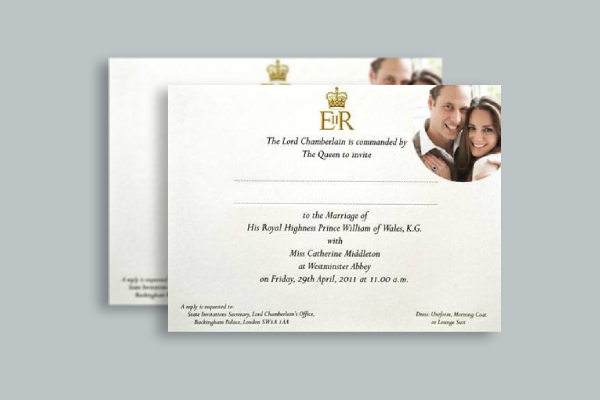
What Is a Wedding Invitation?
A wedding invitation, like any invitation card, answers the who, what, when, and where of it’s intended occasion. It doesn’t only tell the recipient the details about the wedding, but it also signifies that he or she is more than welcome to come and celebrate with the couple. Which means, it’s a fancy card that grants a person entry into a nuptial event.
Nowadays, it seems like everything has already been consumed and altered by the digital era, including traditional wedding invitation cards. Most people opt for email and group chat RSVPs because it’s cheaper and faster. But why are invitation cards still relevant? According to Apartment Therapy, paper invitations are still useful because it reaches everyone, especially those who are not on social media. It’s also more private, and it clearly identifies who’s going to be there. And here’s the most crucial part: nothing can ever trump a wedding invitation card’s style and artistic value.
If you’ve been wandering in the dark about how you can design your wedding invitation, learn from the steps below: When making the wedding’s invitations, keep in mind that any material about the event is an extension of the occasion. Check out what the wedding’s theme is going to be. If it’s a garden wedding in springtime, you may want to adapt to the atmosphere of the season and make a floral wedding invitation. If it’s a grand occasion with a metallic theme on dark shade background, you may want to make a golden wedding invitation, complete with its royal and elegant touch. If it’s a simple wedding ceremony with no established theme, it’s always safe to go for a formal wedding invitation design. Starting the process by determining the wedding theme helps you decide what color to use and what design elements to apply to the layout. Because most wedding invitations mainly consist of texts and design elements, it goes without saying that the invitation’s content is the main attraction of the layout. It’s only right that you use high-quality fonts for your invitation. Most wedding invitations use the calligraphy text style because it denotes elegance and timelessness. Whatever your wedding theme may be, it would undoubtedly fit. However, don’t be afraid to experiment with other font styles. For example, if it’s a rustic-themed wedding and you’re making a country wedding invitation, look up for rodeo-type font styles or other vintage typefaces. If you want your card to inform less and show more, you should definitely use a photo on your layout. Aside from the fact that photos make any graphic surface more appealing and expressive, they can also serve as a keepsake that your guests would love. The picture of a couple who are gearing up to stay together for the rest of their lives would excite anyone who will receive your invitation card. However, if you opt to use photos, make sure they are of high quality and professionally taken. Note that a bad photograph can easily ruin your wedding invitation card. Your invitation card doesn’t have to contain a lot of texts. Stick to the basics: the couple’s name, time, date, and venue. If you want, you may add a brief notice, such as a no-gift policy or a dress code. Other details that are not mentioned above are unnecessary. Doing so leaves an ample amount of space on your event invitation layout for more appealing ornates and design attractions.
How to Design a Wedding Invitation
Step 1: Adapt the Wedding’s Theme
Step 2: Use High-Quality Fonts
Step 3: Employ Photos
Step 4: Keep the Content Minimal
FAQs
When is the best time to send your wedding invitation card?
The best time to send your wedding invitation is three to four months prior to your wedding date.
Is a save a date card the same with an invitation card?
A save a date card functions the same way as an invitation card, but it is sent out way earlier. It acts as a pre-invitation to let the people know that a couple is going to get married, and as the wedding draws nearer, a follow-up invitation card will be given.
What’s the typical paper size for a wedding invitation?
The typical paper size for a wedding invitation is 4.5″ x 6.25″.
Weddings are special because it’s a celebration you spend with people who matters to you. It creates a lasting bond and a memory you’ll look back with fondness and joy. And events like this takes immense preparation time and a long to-do list. Leave the worry on how your wedding card will look like to us and take a ready-made wedding invitation template from our collection. They’re professionally made in high-quality designs to match the grandeur of your special day. Download now!


